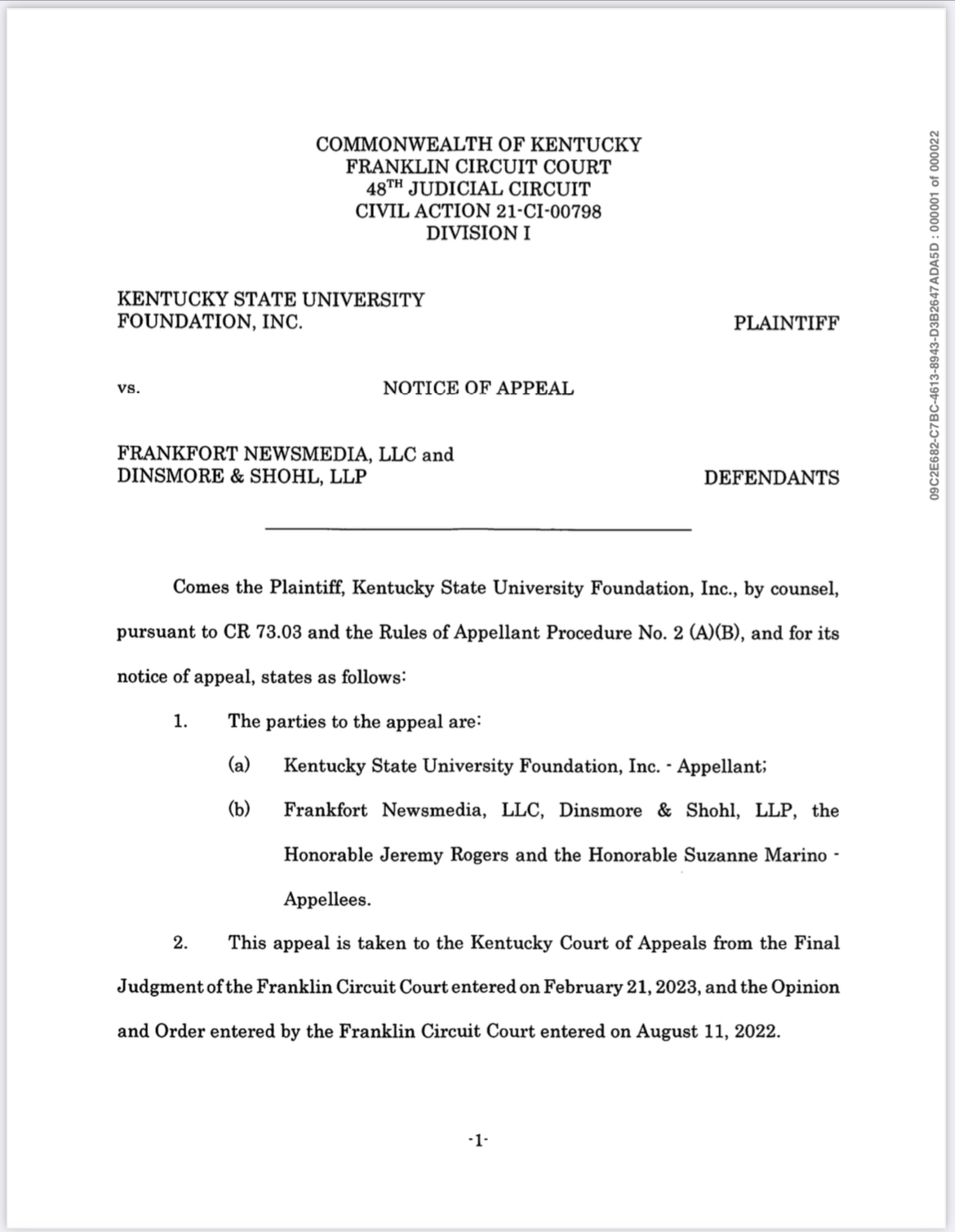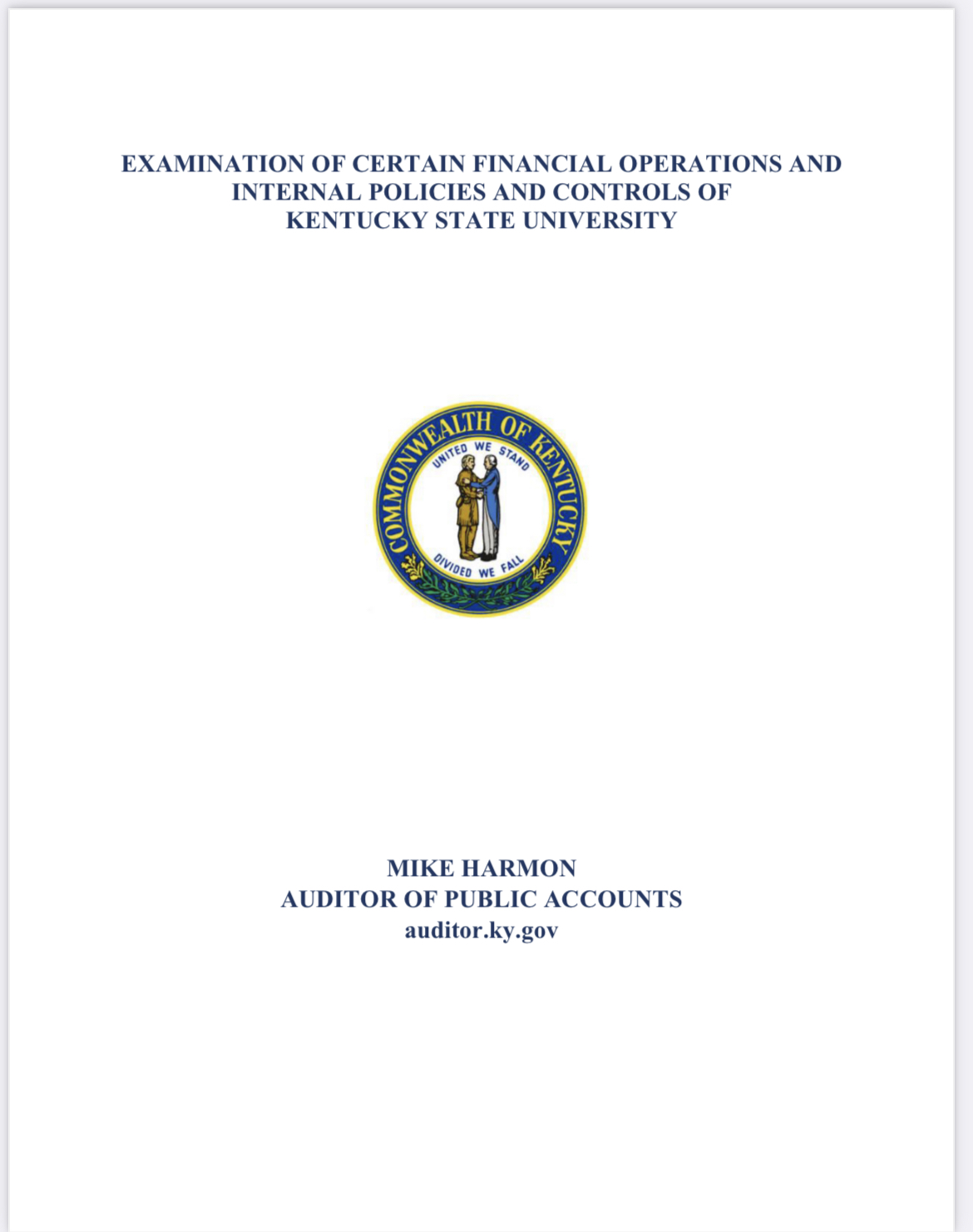

The release of State Auditor Mike Harmon’s special examination of Kentucky State University coincides with the filing of an appeal — by the Kentucky State University Foundation — from the Franklin Circuit Court's August 11, 2022, opinion affirming a Kentucky Attorney General's decision —21-ORD-179 — that the Kentucky State University Foundation "falls squarely within the definition of a public agency under the Open Records Act because it was established, created, and is controlled by [Kentucky State] University."
https://www.auditor.ky.gov/Auditreports/Miscellaneous/2023KSUSpecialExa…;
https://bloximages.newyork1.vip.townnews.com/state-journal.com/content/…
In his 2022 opinion, Franklin Circuit Court Judge Phillip Shepherd focused, in part, on the Memorandum of Understanding between the University and the Foundation as proof of the extensive “control” of the Foundation wielded by the University.
https://bloximages.newyork1.vip.townnews.com/state-journal.com/content/…
The Auditor’s examination further undermines the Foundation’s claims that it exercised control of Foundation affairs as a separate autonomous unit.
https://www.facebook.com/419650175248377/posts/1136037206943000/?d=n&mi…
https://m.facebook.com/story.php?story_fbid=511044501188507&id=10006848…
Among the Auditor's findings is a finding that “despite a mutually signed Memorandum of Understanding indicating how the two entities engage in strategic planning for the University, KSU and Foundation representatives described very limited communication and synergy between the two entities. Foundation representatives identified that they have had ‘zero’ participation in strategic planning for the University and that the MOU was created by KSU to fulfill requirements for accreditation.”
In other words, the University called the shots — albeit very poorly and without benefit of adequate documentation.
As in his examination of the University of Louisville Foundation, Harmon’s examination of the KSU Foundation highlights a lack of accountability and transparency. In the UofL Foundation case, officials sought to evade open records laws through a series of devices and subterfuges. In the KSU Foundation case, the same goal was achieved by abysmal record keeping and retention.
https://www.courier-journal.com/story/news/education/2017/06/08/forensi…
Harmon underscores "KSU’s inability to provide requested documentation throughout the special examination" and "its failure to maintain an effective system of controls over its official records leading to violations of record retention requirements at the state and agency level."
"Failure to properly maintain records consistent with retention policies," Harmon concludes, "impacts the agency’s ability to properly manage and monitor its financial activities, limits its ability to address legal and administrative matters that arise, and restricts transparency and accountability to the public."
Harmon notes that his office's work "was significantly impacted by KSU’s inadequate or non-existent record keeping and continuously high rate of employee turnover."
The picture that emerges from Auditor Harmon's special examination is so bleak, in fact, that he refers his findings to "the Kentucky Office of the Attorney General, the U.S. Attorney’s Office for the Eastern District of Kentucky, the U.S. Department of Treasury, and the U.S. Department of Education."
Ironic, indeed, that on the same day the Auditor released his special examination of Kentucky State University, the University's fund-raising arm, the KSU Foundation, should challenge both the Kentucky Attorney General's, and the Franklin Circuit Court's, determination that it, too, is accountable through its records -- such as they are.


